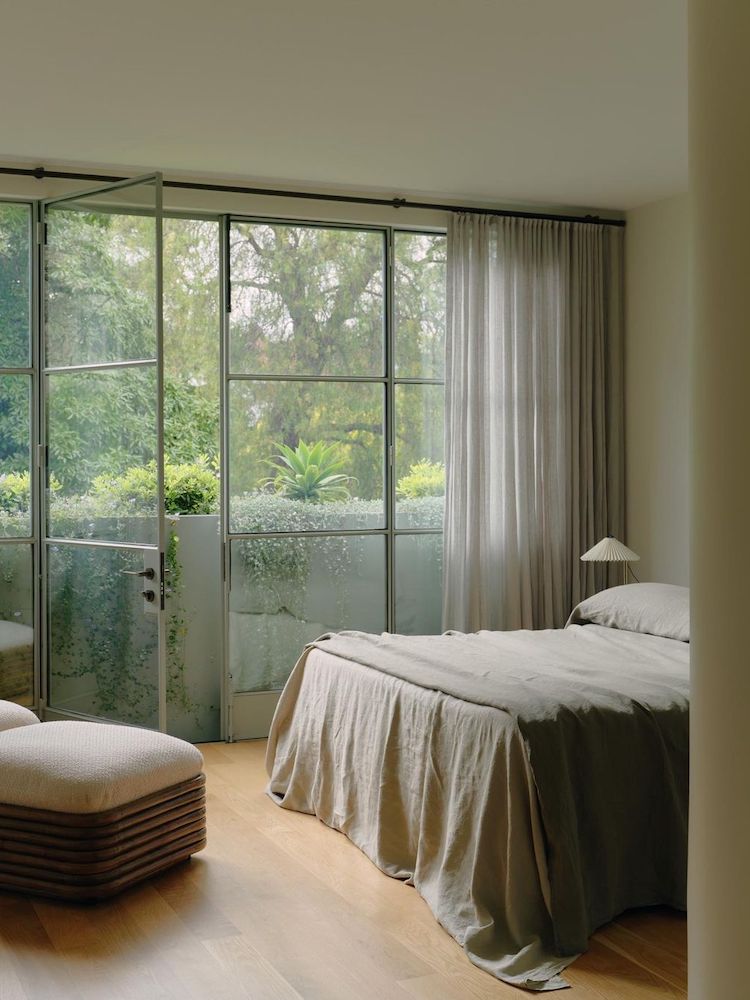-
06/06












In 2011, Nicolas Schuybroek founded his architectural practice in Brussels, Belgium, driven by a mission to create spaces with precision, craftsmanship, and warmth. His style, often labeled monastic and minimalistic, reveals a artful elegance.
Schuybroek's meticulous approach sets him apart, earning him multiple listings on the AD100 and features in international publications. From the shores of the Cote d’Azur to the energy of Mexico City, his work seamlessly blends context with a deep understanding of individual needs.
Beyond architecture, Schuybroek designs objects showcased at prestigious events like the Milan Furniture Fair and Salone del Mobile. Currently engaged in large-scale projects globally, his multicultural background enriches his work with a broad, international perspective.
Nicolas Schuybroek, is not just an architect but a visionary rewriting the rules of architectural elegance. -
06/01

For those who may not know me on a deeper level, it could come as a surprise that I don't quite fit the typical Type "A" personality mold that many might assume. In reality, I see myself as more of a Type B personality with some unique organizational tendencies. However, the art of organization has become the cornerstone of my success, and I've come to rely on it in every aspect of my life.
Over the years, I've explored various methods of personal organization, from physical agendas, notebooks, and journals to digital applications and computer notepads but it was a fortunate discovery of Notion, an online organizational tool, that marked a significant turning point in how I approach life.
For those unfamiliar with it, Notion is an incredibly customizable tool that can be tailored to your specific needs. From the moment I started using it, I was hooked. Initially, I used Notion to bring a long-conceived business concept to life. I created a project within it to seamlessly compile lists, track tasks, take notes, preserve sources of inspiration, and even upload images, all in a meticulously structured manner. I adhered to my plans and diligently worked through my tasks for a whole month. Encouraged by this success, I expanded my use of Notion to organize my work and clients, and eventually I decided to commit to organizing every aspect of my life in December.
When I say "every aspect," I truly mean it. I migrated all my projects from other applications to Notion and created new systems within it. I designed a "Habit Tracker" to monitor my top five habits, systems for tracking my progress in reading the Bible (almost completing it in a year), cataloged my capsule wardrobe, maintained a checklist for wardrobe updates, tracked my finances, monitored the shelf life of skincare products, managed work rotations, and even kept a personal journal – all within Notion.
So, when I say "everything," I sincerely mean everything. This comprehensive approach to organization has made it much easier for me to stay on top of my goals throughout the year. Last year, I spent just three days creating a "Personal Development" PDF that delved into self-assessment across various aspects of my life, including finances, spirituality, career, and personal connections. This helped me establish a Notion-based system divided into trimesters, each with a set of tasks to be accomplished within three months.
My goal was to create actionable, realistic goals for each trimester, without overwhelming pressure. Instead of fixating on specific deadlines, I agreed with myself that unfinished goals from one trimester could be carried over to the next. These goals ranged from simple ones like "drink more water" to more substantial ones, such as getting out of financial debt, completing crucial online courses, renewing my passport for future travel, launching a business from scratch, and starting the process of obtaining Brazilian citizenship.
At the beginning of each trimester, I revisited my lists and took small steps toward achieving them. I made calls, enrolled in courses, attended appointments, shopped for my capsule wardrobe, interacted with government authorities, set up a business account and more. Gradually, I made progress without feeling overwhelmed. After nearly a year of dedicated effort, I'm proud to say I've successfully completed 42 out of the 60 goals I set for the year. As for the remaining 18, I've already taken steps to ensure their completion before 2024.
Some might view this level of organization as excessive, but for someone like me dealing with mental health challenges, it's been a lifeline. It has allowed me to thrive, even in the most challenging situations. For instance, in one trimester, I accomplished a remarkable 22 goals, but in the next I only achieved three major objectives due to my deep involvement in launching a new business, which required most of my energy and financial resources. Nevertheless, I approached the following trimester with the same hope and optimism.
Notion has remained my steadfast companion in organizing my life and maintaining a balanced pace of progress. It has streamlined client onboarding, supported my pursuit of long-term goals, facilitated systematic learning, and brought positive changes to my life and relationships.
In the coming month, I plan to share some of my Notion templates for free. However, the true beauty of Notion lies in its adaptability. You have the freedom to customize it to meet your unique needs and make 2024 a year of profound self-improvement. If you haven't explored Notion yet, I wholeheartedly encourage you to do so by following this link.05/05







In a world that whirls faster with each passing day, the allure of timeless minimalism in interior design and architecture stands as a testament to the enduring beauty of simplicity. This design philosophy transcends fleeting trends, capturing elegance through clean lines, thoughtful spaces, and a harmonious interplay of form and function.
Here, quality triumphs over quantity. Every piece, whether furniture or decor, is chosen with precision and care. This emphasis on craftsmanship ensures that each element in the space adds value, both aesthetically and functionally. It's a philosophy that embraces the longevity of design, resisting the disposable nature of fast-paced trends.
Minimalist spaces often ingeniously harness natural light. Expansive windows and strategically placed openings seamlessly blend the interior with the exterior, erasing the boundaries between inside and out. The interplay of light and shadow becomes a dynamic element, casting a poetic ambiance that evolves throughout the day.
While minimalism may initially convey a sense of austerity, at its core lies a deep understanding of the human experience. Thoughtful design takes into consideration the needs and comfort of the inhabitants. The minimalist space becomes a canvas for personal expression, inviting individuals to infuse it with their unique stories and experiences.
Much like the work of architect Oliver Du Puy, timeless minimalism in interior design and architecture serves as an enduring ode to the beauty of simplicity. It extends an invitation to live deliberately, surrounded by elements that bring joy, purpose, and a sense of calm. In a world saturated with constant noise, the elegance of minimalism offers a respite—a timeless sanctuary where less truly becomes more.
Subscribe to:
Comments (Atom)





















